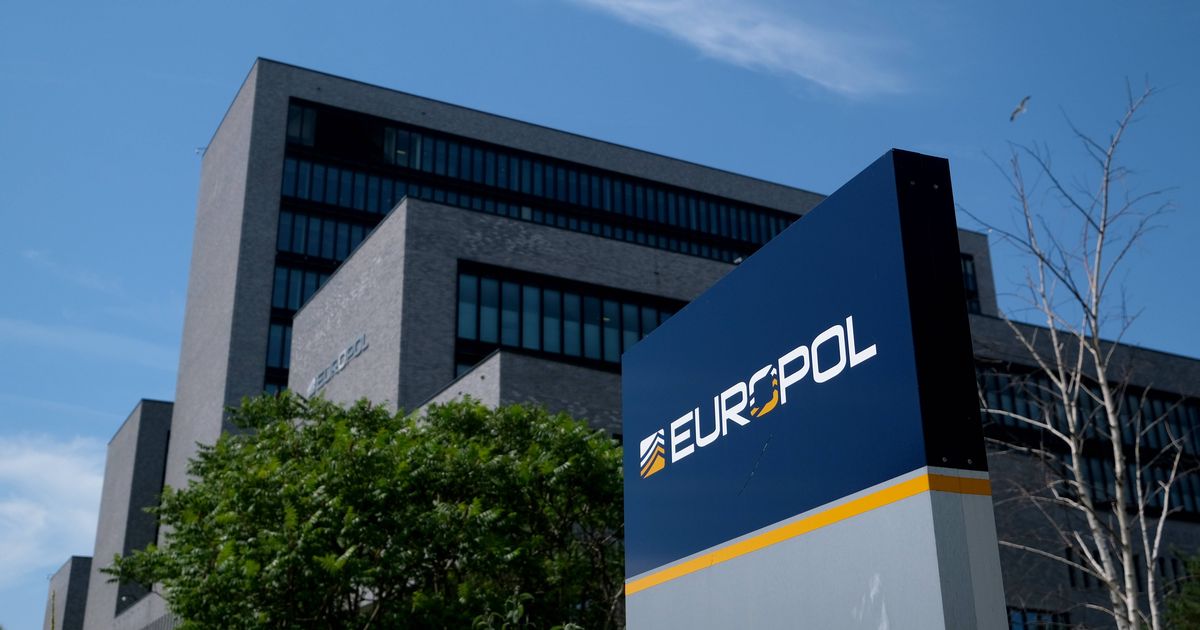Other News
Europol issue warnings to gardai over Irish people being radicalised online

Read more on post.
Foreign police forces have warned gardai of Irish people showing signs of being radicalised online, it has emerged.
A senior garda attached to Europol, the EU’s policing agency, has told the Irish Sunday Mirror she is regularly contacted by other police forces after their online OSINT investigators see signs of radicalisation in an Irish person – from far right to Islamic extremism.
“It’s not unusual. It certainly wouldn’t be an unusual notification we’d receive,” she said at the Europol HQ in The Hague, a major city in the Netherlands. The officer, who cannot be identified because of the sensitive nature of her job, is tasked with sharing intelligence between the Garda all member countries of Europol – including the 26 other EU states, as well as other nations, including Britain.
That sees her and her small number of Garda colleagues give and receive as many as 50 separate pieces of intelligence in one day – from gangland to fraud. But the experienced officer also told us the tip-offs – which come via face- to-face contact or through the Europol secure information network called SIENA – include warnings about Irish people taking part in online forums featuring radical material, of all guises.
The officer said: “Online radicalisation is always a concern. We’ve had information that people in forums have been identified by police officers in other countries as being people of concern by virtue of what they’re posting, or pictures they’re posting or conversations they’re having.
“We regularly receive the SIENA, followed by direct approaches from Liaison Officers, information in respect of potentially radicalized persons online identified via their OSINT units. This will assist us, obviously assist us in assessing people in Ireland.”
When asked what she meant by radicalisation, the officer replied: “People online, dealing with groups and other persons online and viewing and consuming material which could potentially radicalise them in one way or the other.”
And she added: “I think it’s across the board. It’s extreme right-wing terrorism. It’s Islamic terrorism. I think we should be very careful of what our children are consuming on the internet.”
The officer said she did not believe Irish people were being targeted for radicalisation – but were seeing such content themselves. She said: “I wouldn’t say they’re targeting them. I’m saying that when people are in a common space, which is what the internet sometimes is, they are consuming material which, which can potentially radicalise.
“Every person in the world is going online and when they’re online, there’s a possibility that they could be radicalised, because there is material there that they will consume, or they could consume, and it is concerning.”
Garda Intelligence officials are becoming increasingly concerned about online material that could radicalised people here, sources told us. In April, a 17-year-old boy was given eight years’ detention for repeatedly stabbing Catholic Priest Fr Paul Murphy, a Defence Forces Chaplain, in Galway last year – and the teen had been radicalised online.
The Central Criminal Court in Dublin heard he developed an interest in Islam at an early age, which became an obsession. His “extremely unhealthy use of the internet” led him to accept radicalised and violent ideological and religious views.
And in 2016 Islamic convert Khalid Kelly, from Dublin, blew himself up in an Isis bombing attack in Iraq. Meanwhile, the Garda officer on secondment to Europol told us radicalisation was not limited to Islam – and pointed to an infamous right-wing case in New Zealand from March 2019. That was when Brenton Tarrant killed 51 when he targeted a mosque and Islamic centre in Christchurch – and livestreamed the attack. Videos of that attack are still online.
The officer said: “It could be right-wing terrorism. It could be Islamic style material being posted. [It could be] images of shooting attacks known to be associated with Brenton Tarrant and people like that.
“Conversations and memorabilia, posted online, things like that, that would indicate that this person has a certain radicalised mindset.”
The Irish Mirror reported earlier this week that the officer works closely with European colleagues and the Garda force had worked work other police agencies to foil at least 12 murder plots in Ireland and on the continent. She also said that European gangs are active in Ireland – and Irish outfits are trying to fill the vacuum on the continent left by the Garda’s dismantling of the Kinahan cartel, especially in Spain.
Now the officer revealed, as well as drugs, one of the biggest issues on her desk is international fraud. And she added that in many cases, the victims of the fraud are in one country, the criminals in another – but the money ends up is so called money mule accounts in Ireland.
That is when Irish residents allow criminals access to their bank accounts to move cash from scams. She said: “We’re also dealing with an awful lot of fraud and money laundering, a huge amount of money mules.
“Sometimes you have a case where the victims are in another country, the perpetrators are in another country, but somehow that money is finding its way to money mule accounts in Ireland.”
International cops have in recent years smashed two online scam sites called Lab Host and iSpoof – and in each case Irish fraudsters were heavily involved in them, she said. She said: “Irish fraudsters were some of the biggest users of both those spoofing platforms, which will show how big money laundering and fraud is in Ireland.
“You’re talking about countries who are who have multiples of our population having far less users of these spoofing platforms.” And she pointed to one live case where fraudsters based in Ireland were involved in scamming people in Finland.
She said: “Young men [were] acting from the south of Ireland using a network of money mules that had been recruited on college campuses and schools.”
When asked why Finland, she said: “It might be the fact that the Finnish hadn’t been hit with this type of crime. There was also more of a vulnerability and naivety, because we are so used to it in Ireland that a lot of us receive calls and text messages and we just ignore them, unless they the fraudsters get lucky and we happen to be waiting on an An Post package or something like that, whereas in Finland, I think it hadn’t really been an issue for them and then they were targeted. But other than that, we had no links to Finland.
“They got a lot of money. I think it was the largest crypto seizure we had, and we had evidence of significant number of other assets, I think at the time, it was about €1.8million.”
And she said Europol was vital to that investigation, adding: “They facilitated Finland and Ireland coming together in operational meetings. They facilitated the information exchange. They provided a huge amount of analytical support, analytical reports, links to other countries outside Finland.
“And they also held two cyber sprints here at Europol, and where investigators from Ireland and from Finland came together to review all the material in their possession, go through all the phones and go through all the evidence, and they facilitated a meeting in Finland, and they’ve supported meetings across the road in Eurojust.
“This actually started with investigators going into house in Ireland and finding the computer open and seeing a lot of evidence which linked these guys to a fishing smishing campaign. And then it kicked off from there. It was essentially cracked when [gardai] went into the house and they found all this evidence.”
The officer also outlined exactly what her job in Europol entailed. She said: “A lot of contacts, a lot of talking to people.
“You’re required to be very sociable, because you’re always looking after Ireland’s interests, and Ireland’s interests are best served by having people wanting to help you. If you’re willing to help them, they in turn, are willing to help you.”
She added: “It’s very fast paced, and you’re not doing you’re not doing one thing in any given day. You could be doing 20 things in a day. Here now I’m sitting here talking to you. Earlier today, I was in a working group which determines the strategic direction of Europol.
“Earlier today, I was talking to the economic crime bureau in relation to a case that they have ongoing where they have links to another country, and we need to have an operational meeting to explore those links further.
“We could be dealing with three or four different agencies. We could be receiving intelligence that we’re passing on at short notice or via SIENA.
“What we do here, we’re never doing the arrest at the end of the day, we’re not doing the searches, and we’re not in interviewing the suspects. But we have a role in that. We’re making everything else that happens in the investigation happen.”
Join our Dublin Live breaking news service on WhatsApp. Click this link to receive your daily dose of Dublin Live content. We also treat our community members to special offers, promotions, and adverts from us and our partners. If you don’t like our community, you can check out any time you like. If you’re curious, you can read our Privacy Notice.
For all the latest news from Dublin and surrounding areas visit our homepage.











